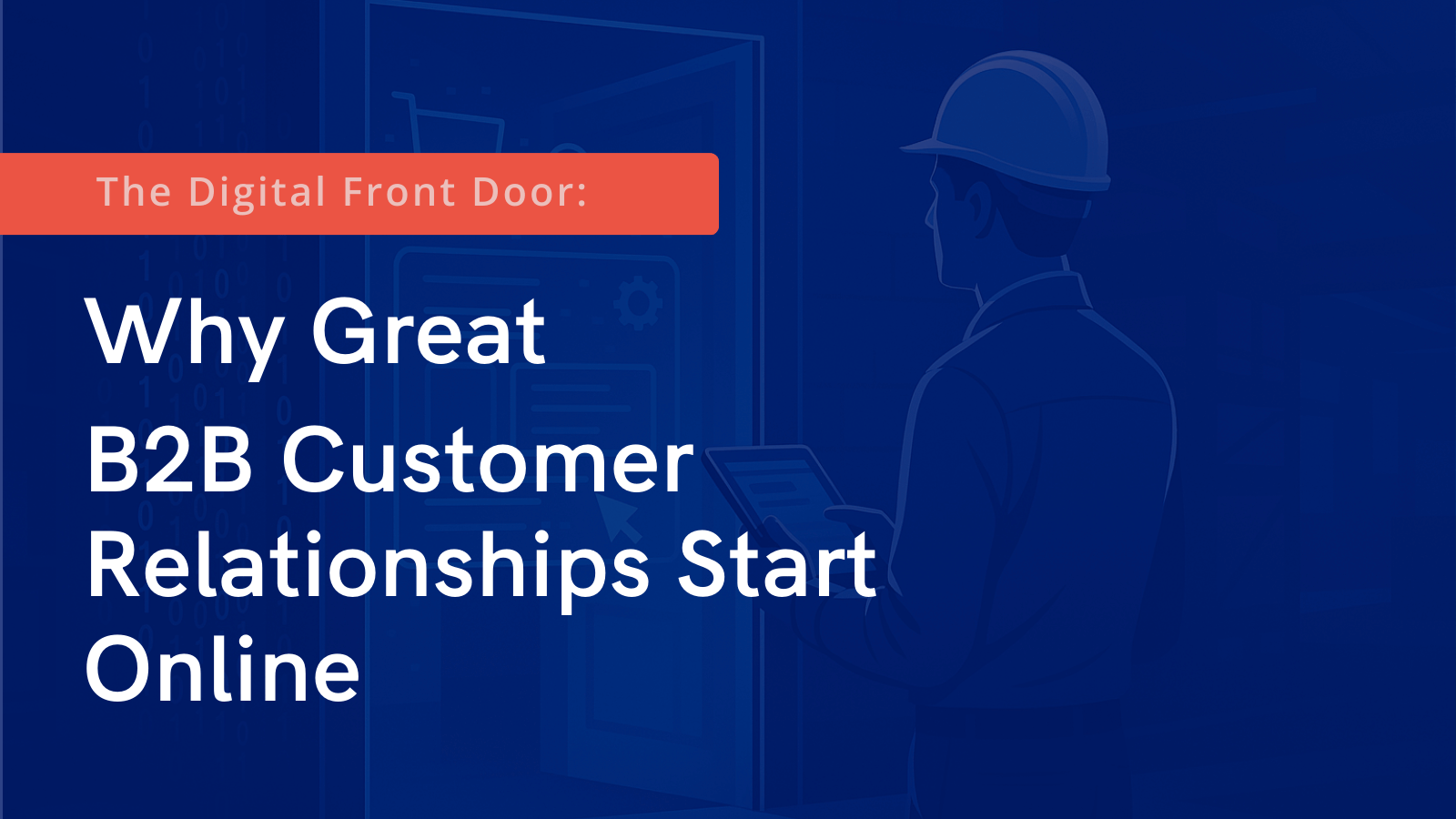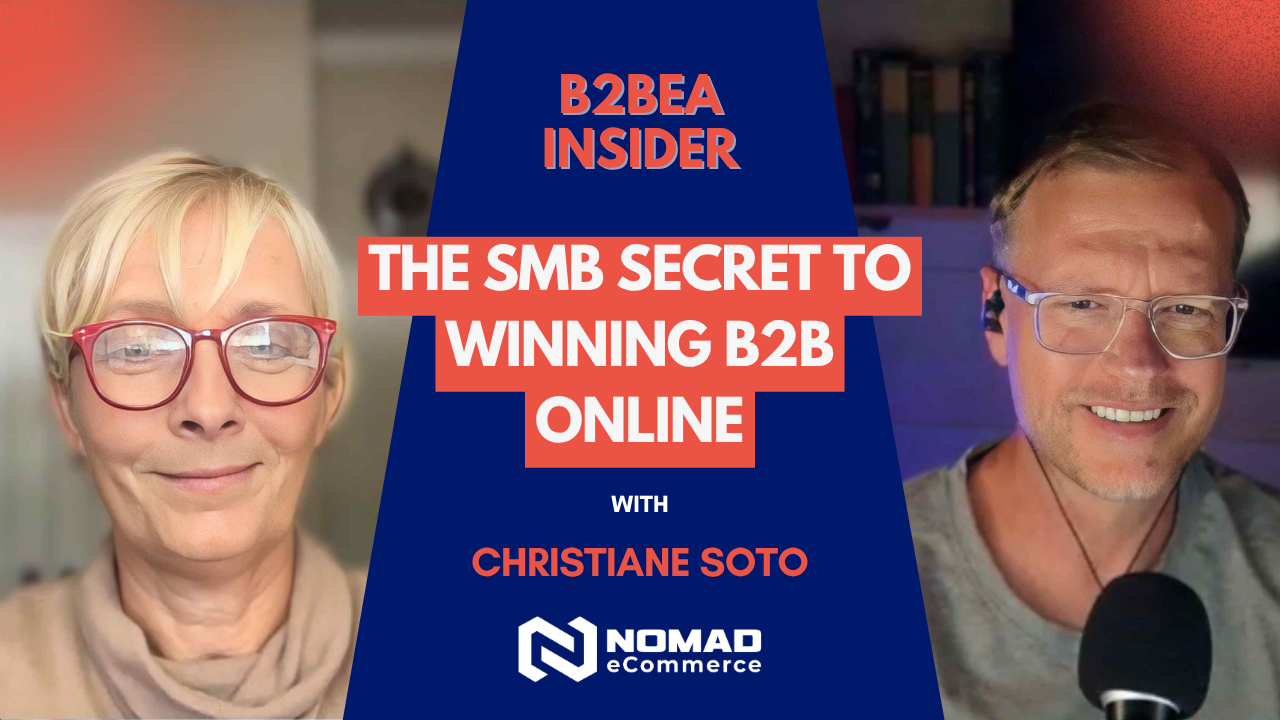B2B Buying is Changing – Are You?
Not All Buyers Are Created Equal
Sam Aldinger of Fastenal dropped a foundational reminder: you can’t treat every B2B buyer the same. There’s a major difference between the production buyer who needs specific, engineered components, and the maintenance buyer making fast, unplanned purchases to keep things running.
Those are two very different buying behaviors and most companies have different people in those roles. That affects how you design the buying experience.
Bottom line: One-size-fits-all eCommerce strategies don’t work in B2B. Know your buyers, and tailor your digital experience accordingly.
Meet Buyers Where They Already Are
Jason Greenwood is seeing growing traction in a non-traditional channel: the customer’s inbox and chat apps.
Buyers are already placing orders and quote requests via WhatsApp, Teams, Slack, and email. The smart companies aren’t forcing adoption, they’re enabling it by turning those channels into transaction-ready pathways.
New tools like Motivate and built-in connectors in platforms like Oro are enabling a new form of “headless” commerce, where the commerce system meets the buyer in their preferred workflow.
Don’t Start with Technology, Start with Strategy
Jason Hein cautions companies against jumping into new tools without knowing what makes their business successful in the first place.
Too many companies start with ‘We need a new platform’ when the current one is just hard to use. Start with: What do we do that our customers love? Capture that, then figure out how to support it digitally.
This approach flips the typical replatforming conversation on its head and sets businesses up to invest in what actually matters.
What Even Is a Marketplace?
The group agreed: “marketplace” is one of the most overused and underdefined terms in B2B.
Jay Schneider pushed for clarity: Some of what’s being called a marketplace today is just a glorified RFP site. A true marketplace allows multiple sellers per SKU and dynamic buying experiences.
Jason Greenwood added nuance: in B2B, dropshipping, hybrid models, and first-party marketplaces all play a role and the real challenge isn’t platforming, it’s merchandising. How do you help buyers find what they need in a sea of SKUs?
Platform Growth… and Consolidation
The B2B platform market is projected to grow from $12.8B in 2024 to $29.3B in 2032, but don’t expect all the current players to make it.
There are 30+ B2B platforms today. There won’t be that many in a few years. We’ll end up with a few big winners and some vertical-specific survivors.
Shopify’s entrance into B2B was a hot topic, with Jay Schneider noting that the $36K starting point for Shopify Plus means it’s targeting a “B2B Lite” market, likely small to midsize sellers without complex workflows.
AI: Beyond the Buzzword
AI isn’t just a trend it’s being baked into platforms in real time. From interpreting email attachments as orders to enabling voice-guided ordering, the AI revolution is already here.
Six months ago, most B2B companies weren’t talking about this. Now, it comes up in almost every conversation I have.
But as Jason Hein reminds us, the industry needs clarity here too. What kind of AI are we talking about? LLMs? Machine learning? CAD generation? “We need to define the terms before we can scale the solutions.”
Language Matters, Let’s Define It
If there’s one recurring theme, it’s that B2B eCommerce suffers from a language problem. Whether it’s defining “adoption,” “marketplace,” or “AI,” the group agreed: we need shared frameworks to move the industry forward.
My goal is to define language. That’s why I build frameworks to create shared understanding.
Rising Voices to Follow
Looking for fresh perspectives on B2B commerce?
The crew highlighted some up-and-comers on LinkedIn:
- Kyler Nixon – writes daily about small distributor strategy, brand, and growth
- Nick Pericle – focused on real-world applications of AI in distribution
- Julian Wallace, Chris Harrington, Kara Babb, Stephanie Griffith – bringing bold thinking from product content, manufacturing, and marketing into the B2B mix
Final Thoughts: The Future Is Fragmented (and That’s OK)
There won’t be one path to success in B2B eCommerce. As customers become more digital, markets become more complex, and platforms become more powerful, companies must carve their own way, built on clarity, flexibility, and real buyer empathy.








